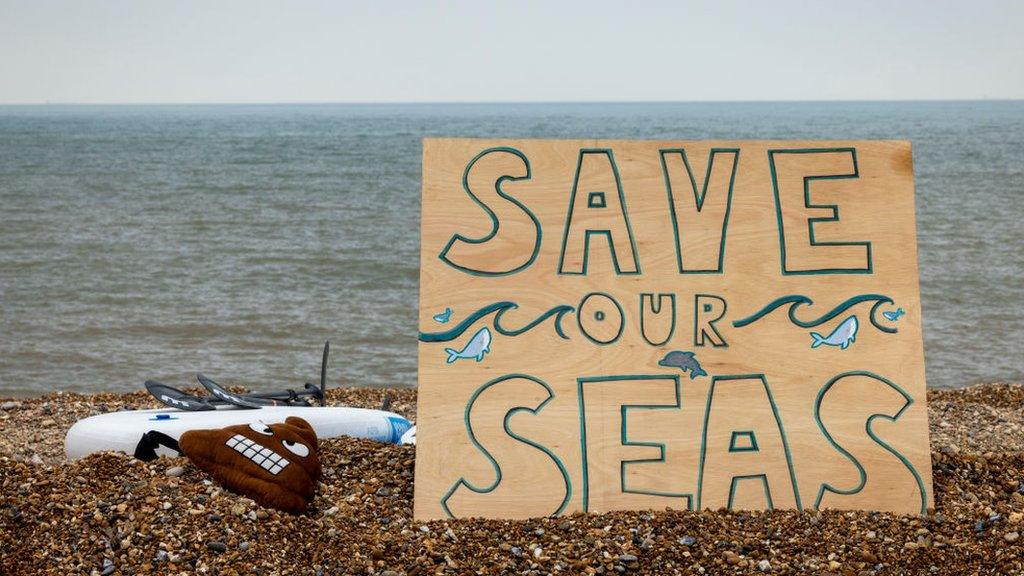Thames Water: Warnings London may face water rationing 'imminently'
- Published
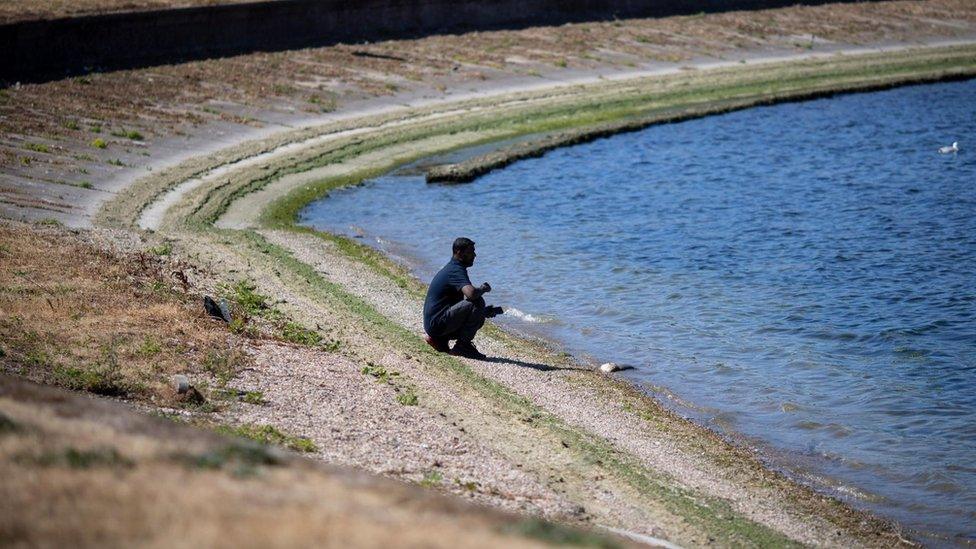
Reservoirs and chalk streams are said to be running dry
London could face water rationing "imminently" because of over-abstraction, over-use and wastage through leaking pipes.
Environmentalist James Wallace, chief executive of River Action, made the warning at a meeting with the Greater London Authority (GLA).
He said the chalk streams that feed the capital's water supply were drying up.
London's main water supplier Thames Water said there needed to be a national change in how water was used.
The company also said it had no plans to ration usage.
At an environment committee meeting, external about the resilience of London's water supply, Mr Wallace said many streams in the Chilterns, which feed the water supply to north London, were permanently dry and some were only at 25% of normal flow rates.
"This means that we are going to be seeing rationing of water in north London imminently. We're not talking 20, 30, 40 years," he said.
"When are we going to treat this like it's an emergency?
"I appreciate it takes time to dig a reservoir but some of these things, like changing our abstraction requirements, reducing consumer demand, fixing leaky pipes, this is a national crisis and we need to address it that way."
In its annual report published this week, external, Thames Water said it lost 602.2 million litres a day through leaks in2022-23 based on a three-year rolling average.
However, the company's interim chief executive, Cathryn Ross, told the GLA that one-third of this quantity was actually "unmeasured consumer use" rather than loss through holes in the company's pipes. She added that rolling out water meters would mean customers could be billed more accurately.
'Take water for granted'
She said the government's Plan For Water, external - which aimed to reduce leakages by half by 2050 and lower consumer use from 144 litres per person each day on average to 110 litres - did not go far enough.
In answer to a question about managing water resources, she said: "Yes, there is more we need to do.
"But we actually need to change our national conversation about water, we need to change how we think about water.
"We need to understand, for example, that London has more or less the same rainfall as Jerusalem and we're not living in a wet country where we can take water for granted."
The BBC asked Thames Water about this comparison between London and Jerusalem. The company said it was not something it took lightly and that it had made the claim before.
According to the Met Office data gathered from Kew, south-west London, the capital has an average of 627mm of rain annually. In comparison, the centre of Jerusalem sees an average of 522mm of rain each year, according to the Israeli Met Service.
The Met Office also said Jerusalem sees no rain during the summer while London gets rainfall all year round.
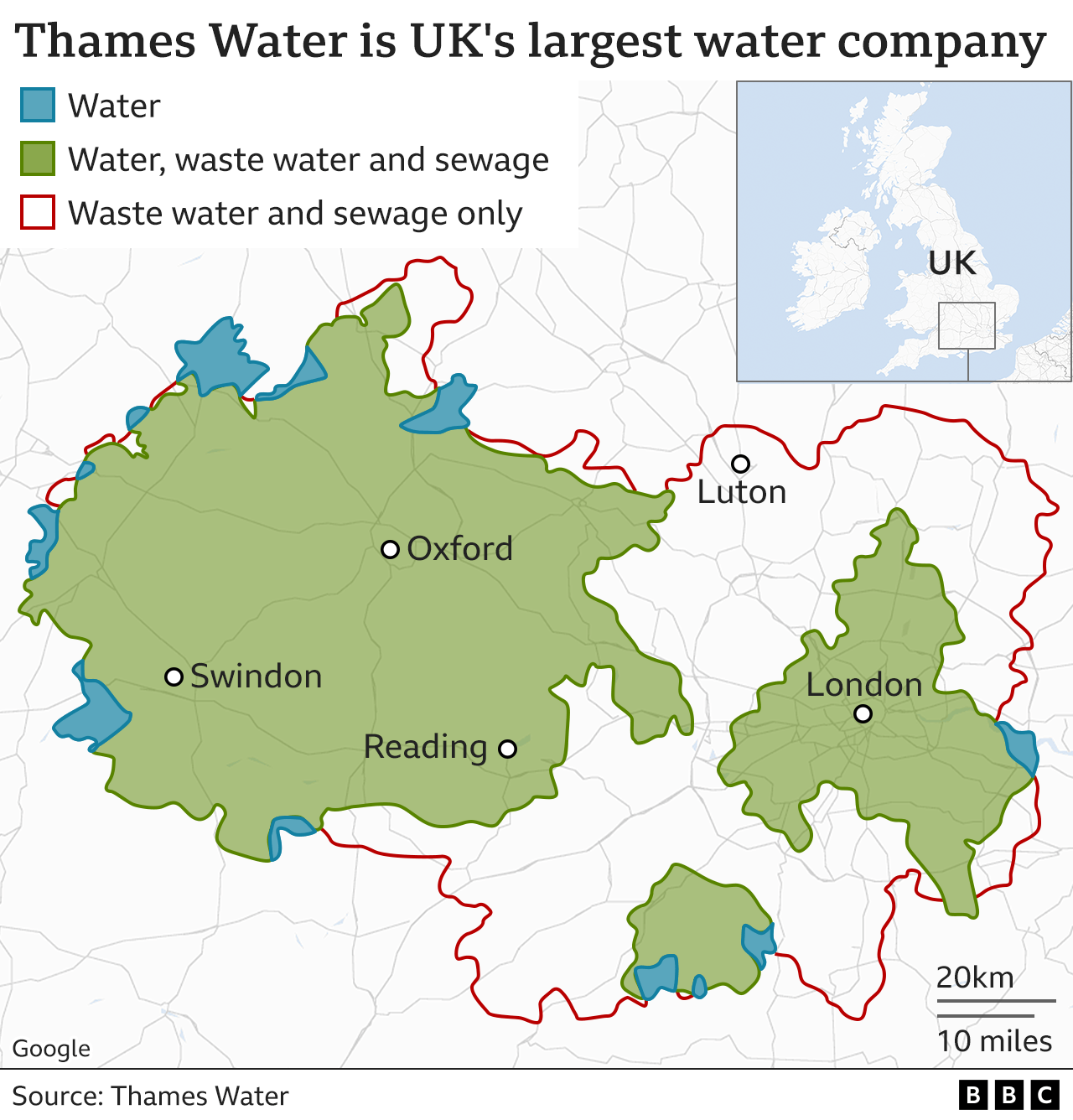
Ms Ross said 80% of Thames Water customers already used the government's target of 110 litres a day but that 20% used a lot more, mostly for watering gardens.
She said the company had wanted to ease supply issues by building a 150-billion-litre reservoir in Abingdon, Oxfordshire.
The project has faced local opposition.
Ms Ross admitted that many of the company's pipes were "ageing assets" that should have been replaced but that the cost could not be covered by customers. Thames Water later said that was due to rules around how consumers are charged.
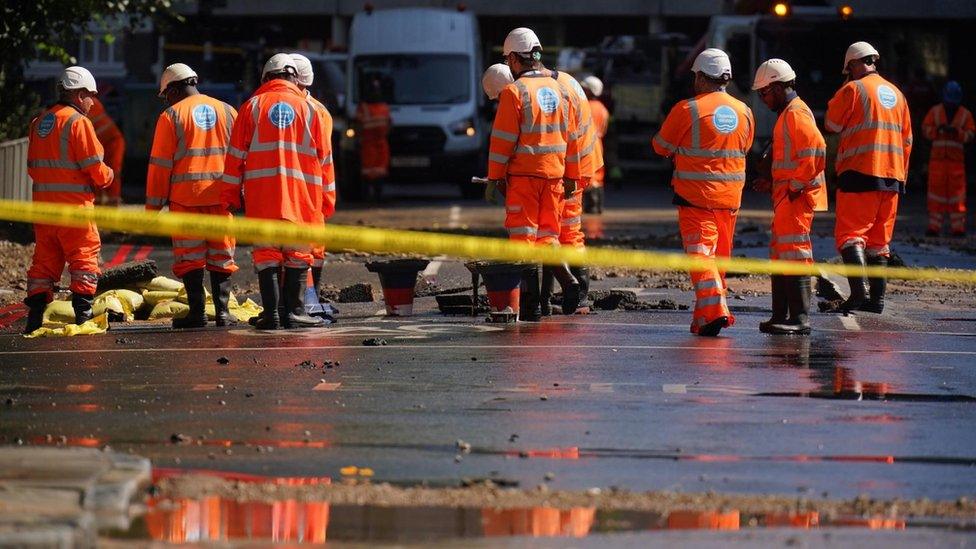
Aging infrastructure has caused mass leakages, Thames Water says
Thames Water, along with other companies, has promised to update its infrastructure to reduce sewage discharges, but it has spent the past few weeks fending off speculation about its financial collapse and nationalisation because of a £14bn debt pile.
Mr Wallace said this was a result of "rapacious" profiteering from its shareholders. In particular, he blamed former part-owner Macquarie, a Australian finance company, for loading Thames Water with debt.
In response, a Macquarie spokesperson said: "We supported the company as it delivered record levels of capital investment in its network, helping to reduce water leakage by 22% while keeping customer bills amongst the lowest in the country."
Thames Water is currently owned by a consortium of foreign pension funds and sovereign wealth funds.
Thames Water failed to meet its target this year on reducing leakages as well as those for sewer flooding, pollution, blockages and customer usage.
Ms Ross said the company was not profitable and this year made after-tax losses of £30m.
She declined to offer a view on whether privatisation had been a failure, saying she had not "given much thought" to whether the water industry would be in better shape if it had remained publicly owned.

Follow BBC London on Facebook, external, Twitter, external and Instagram, external. Send your story ideas to hellobbclondon@bbc.co.uk.
- Published29 June 2023
- Published2 July 2023
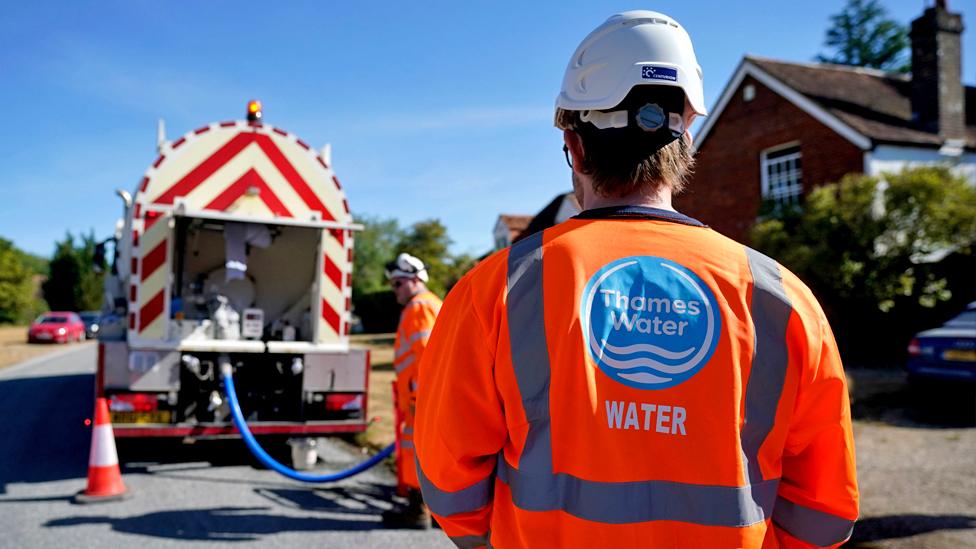
- Published9 July 2023
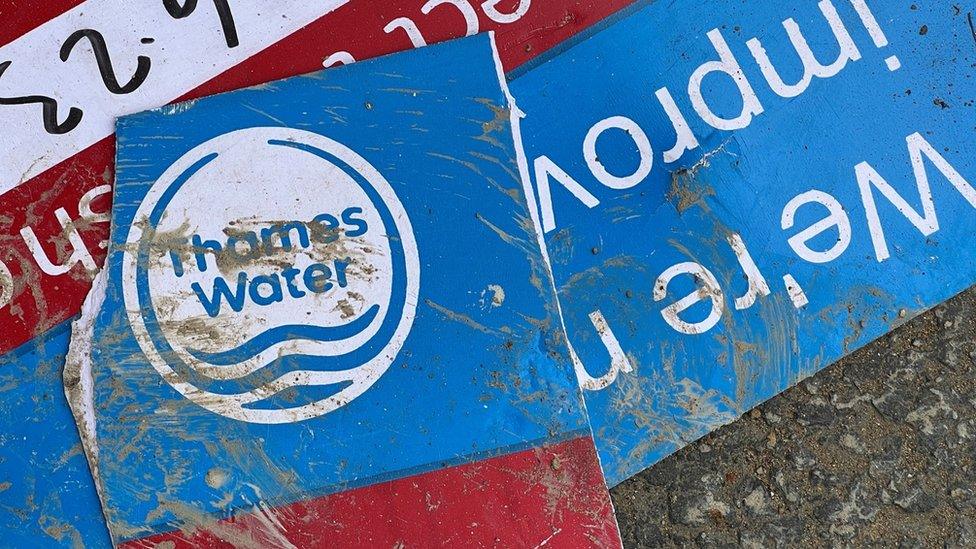
- Published5 July 2023
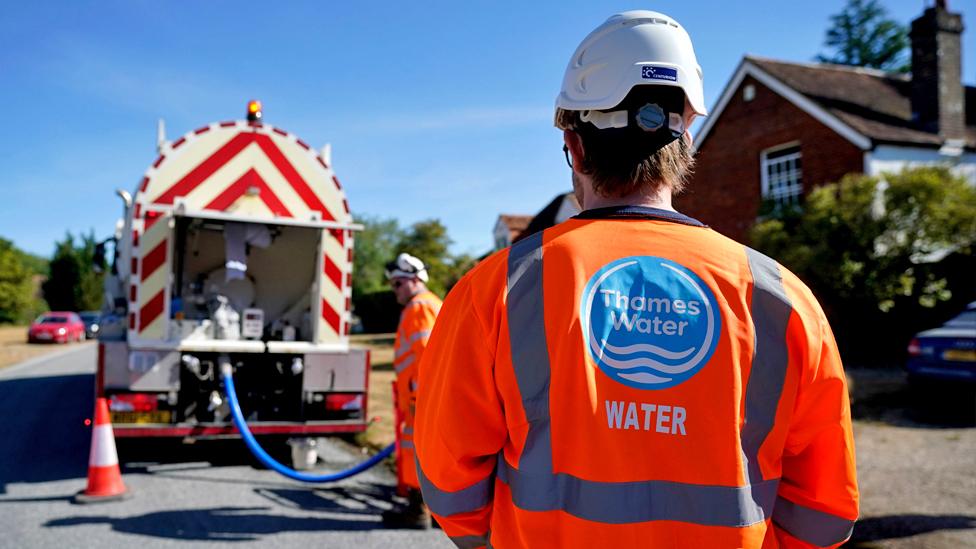
- Published5 July 2023
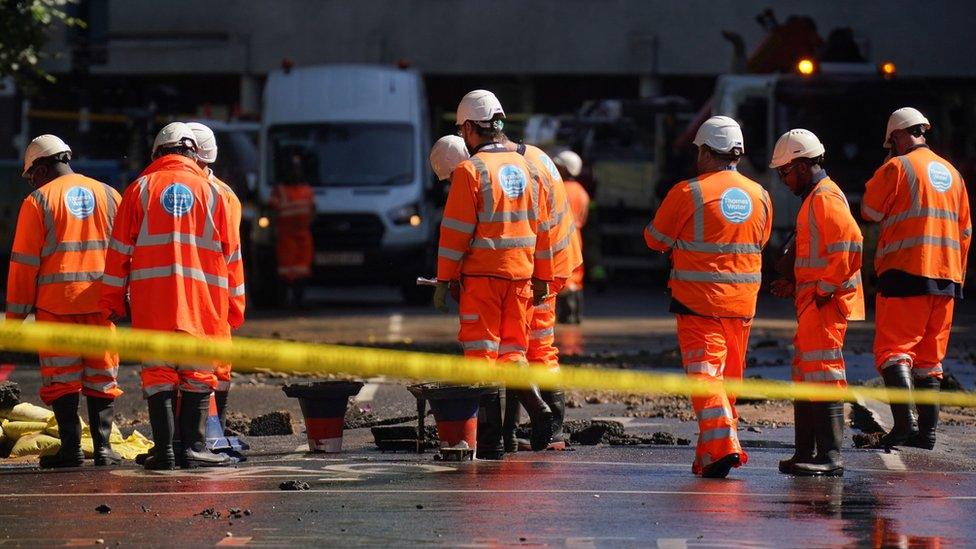
- Published29 June 2023

